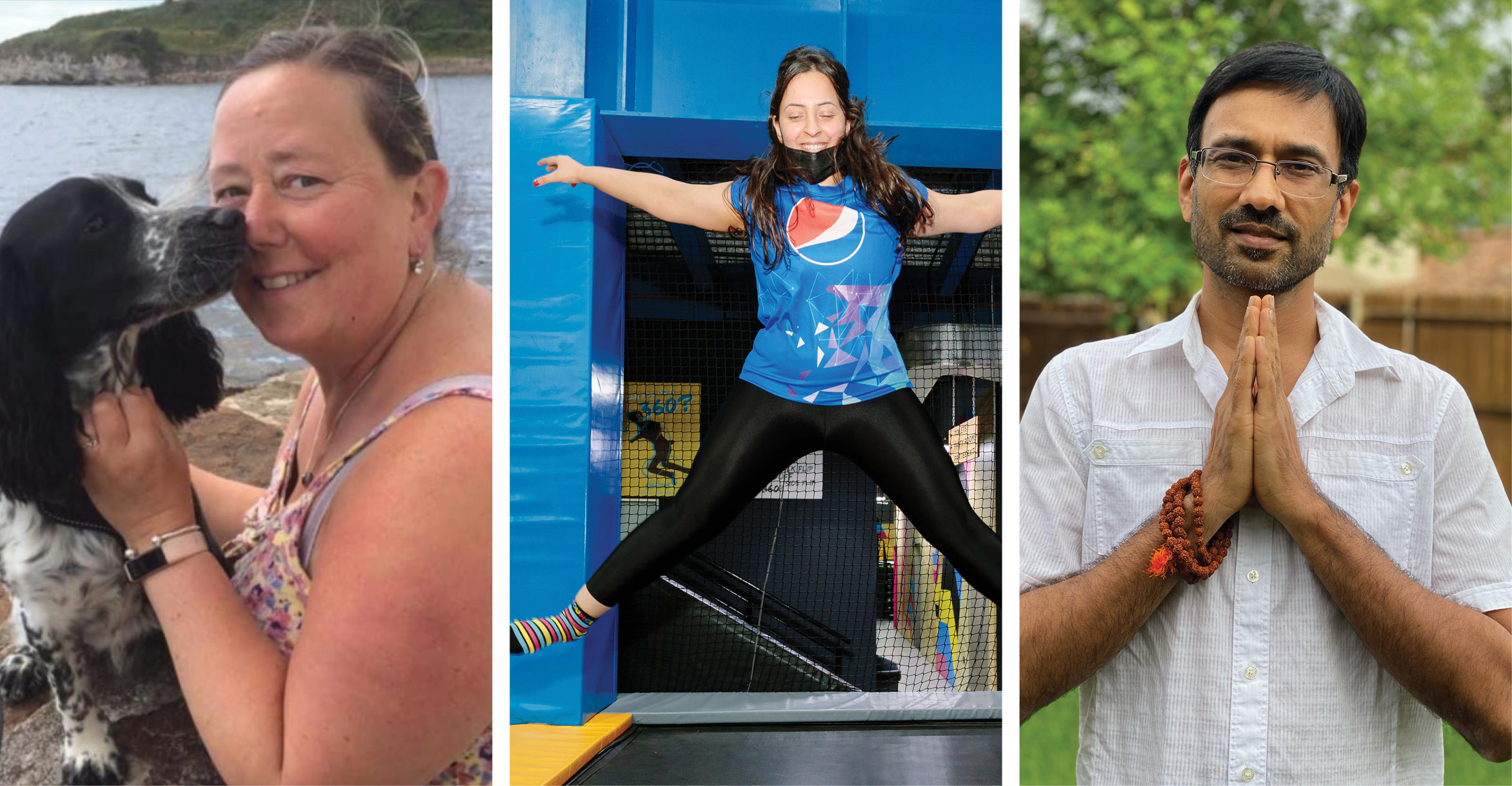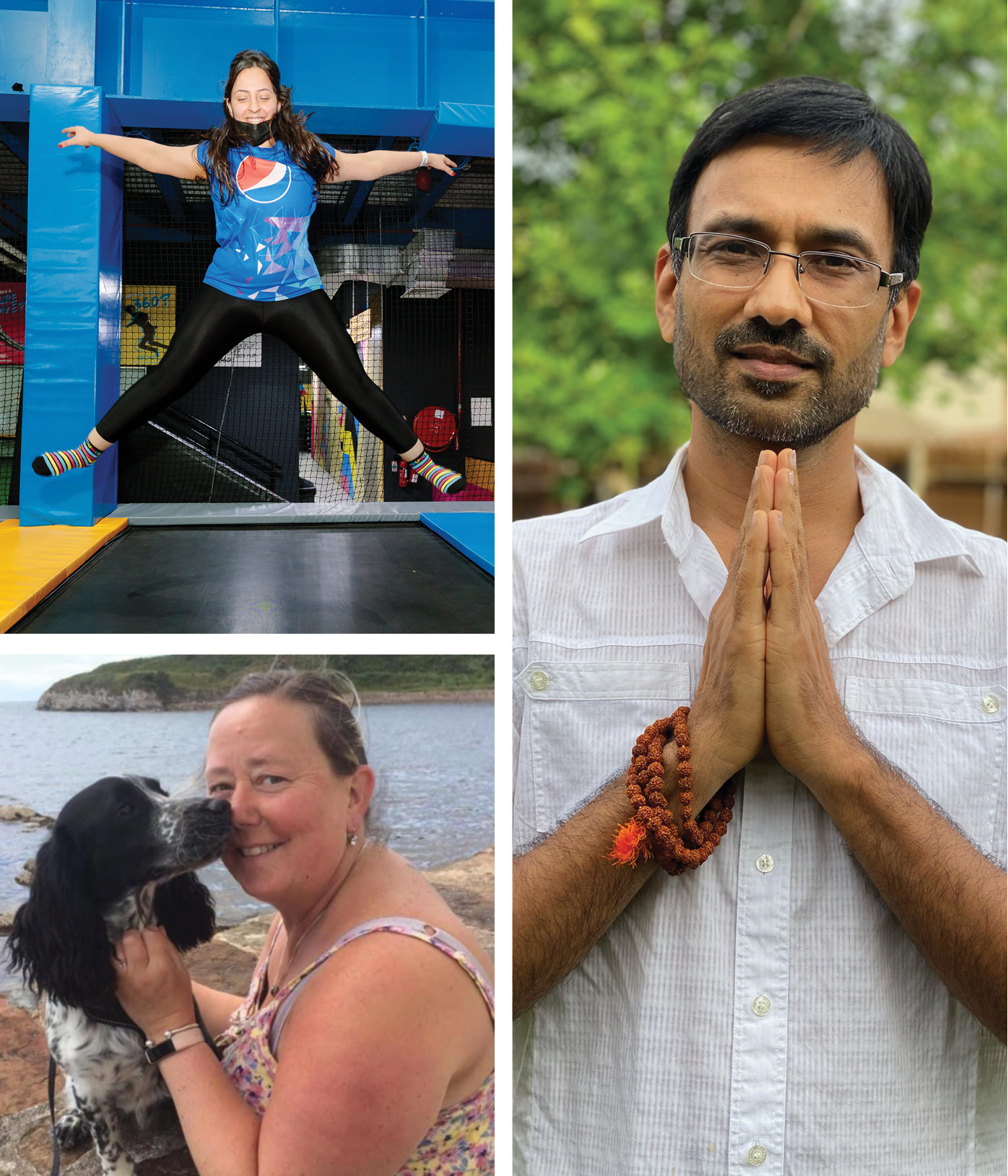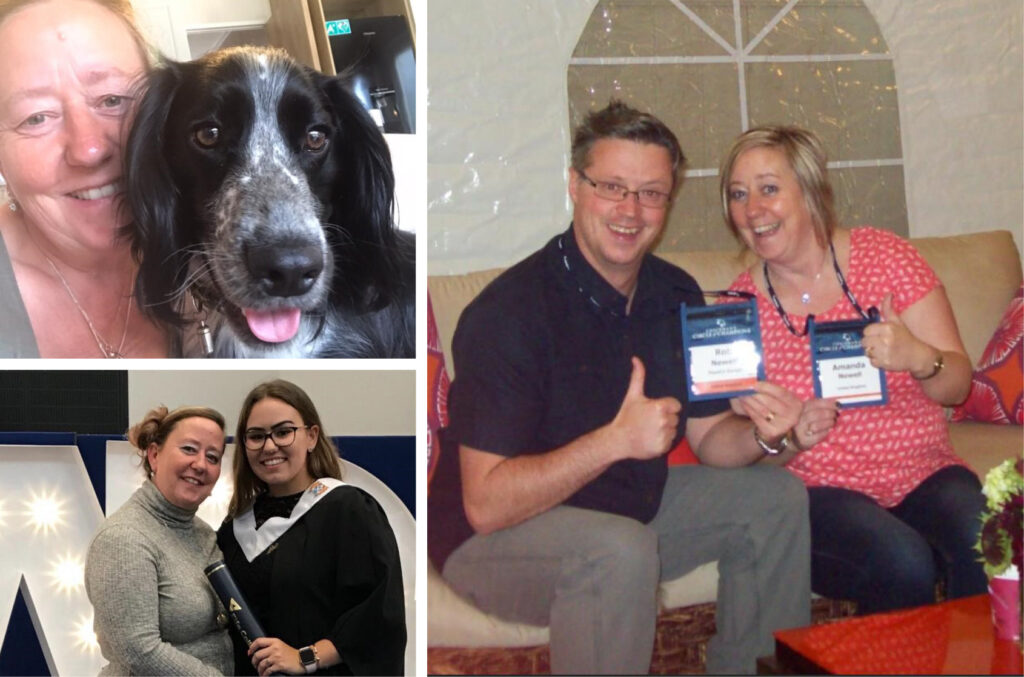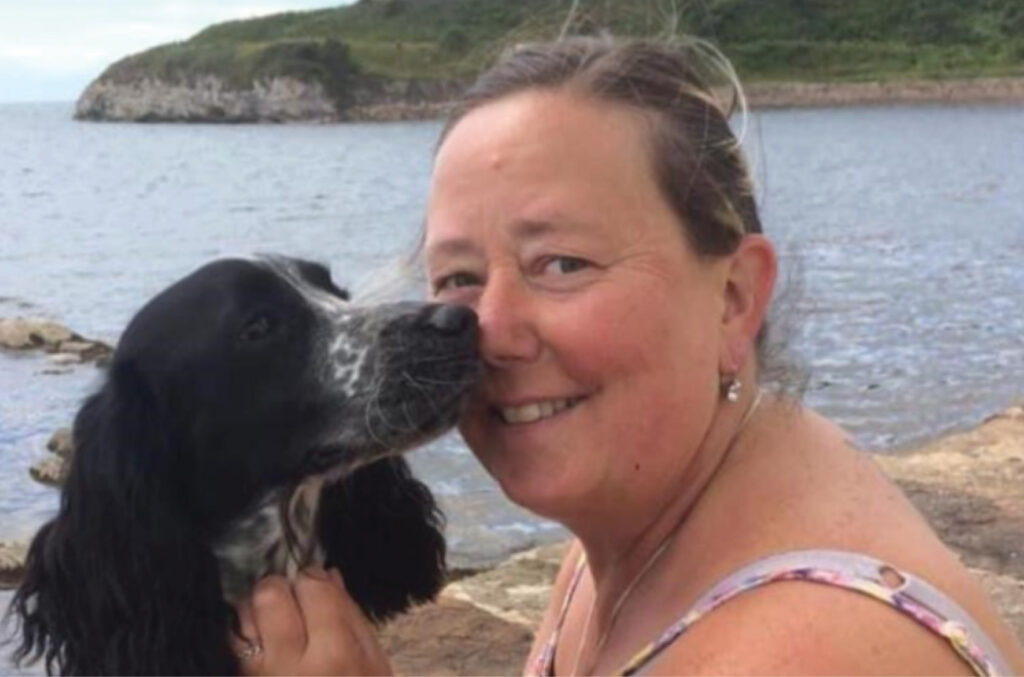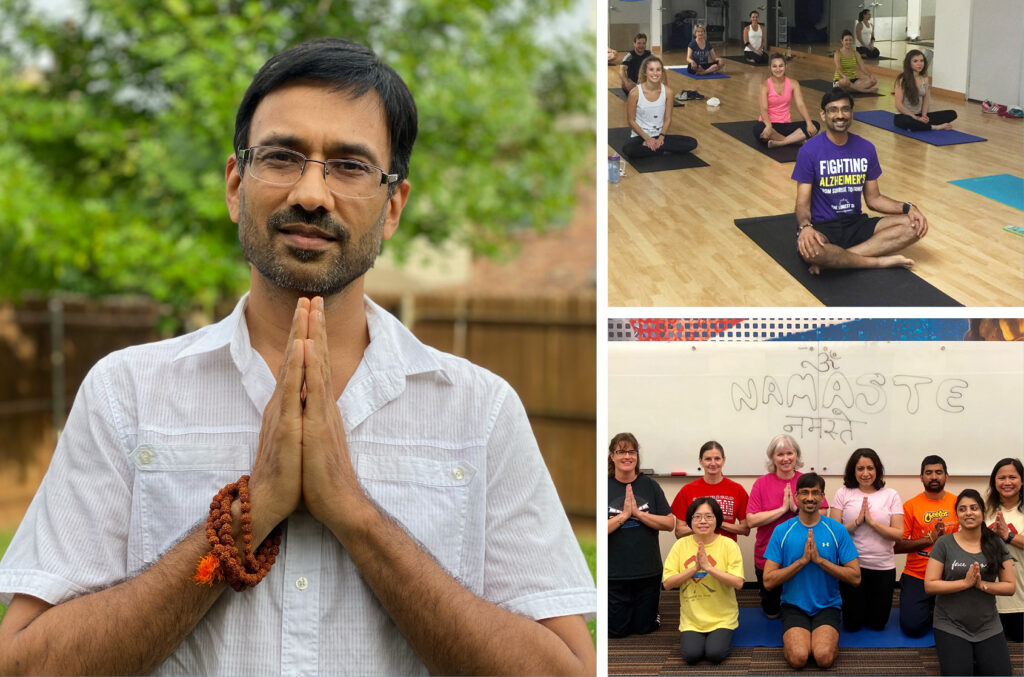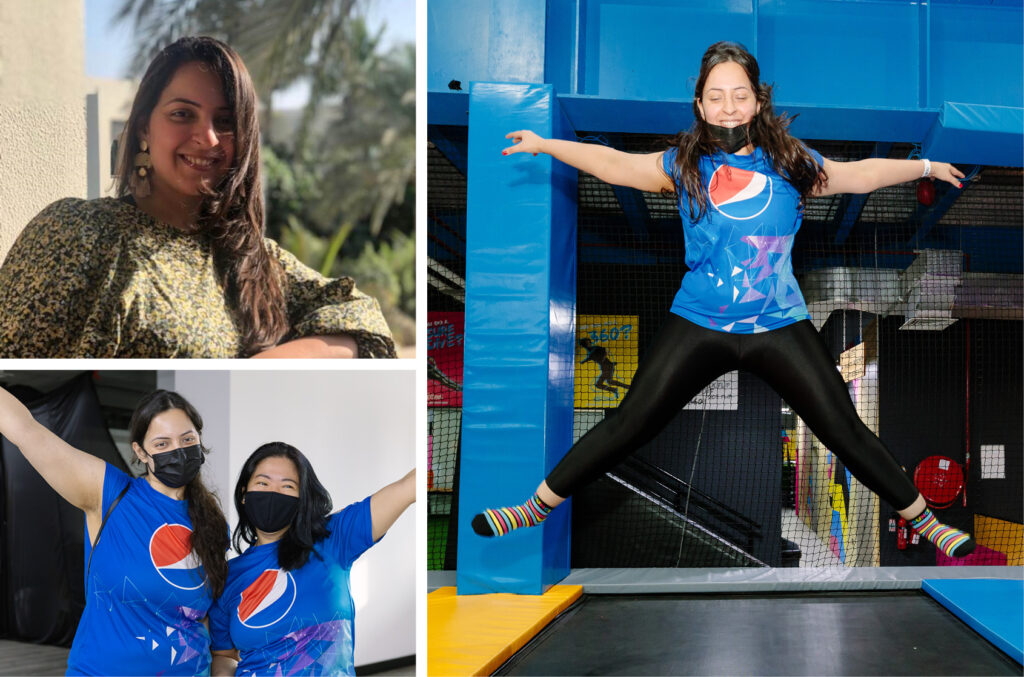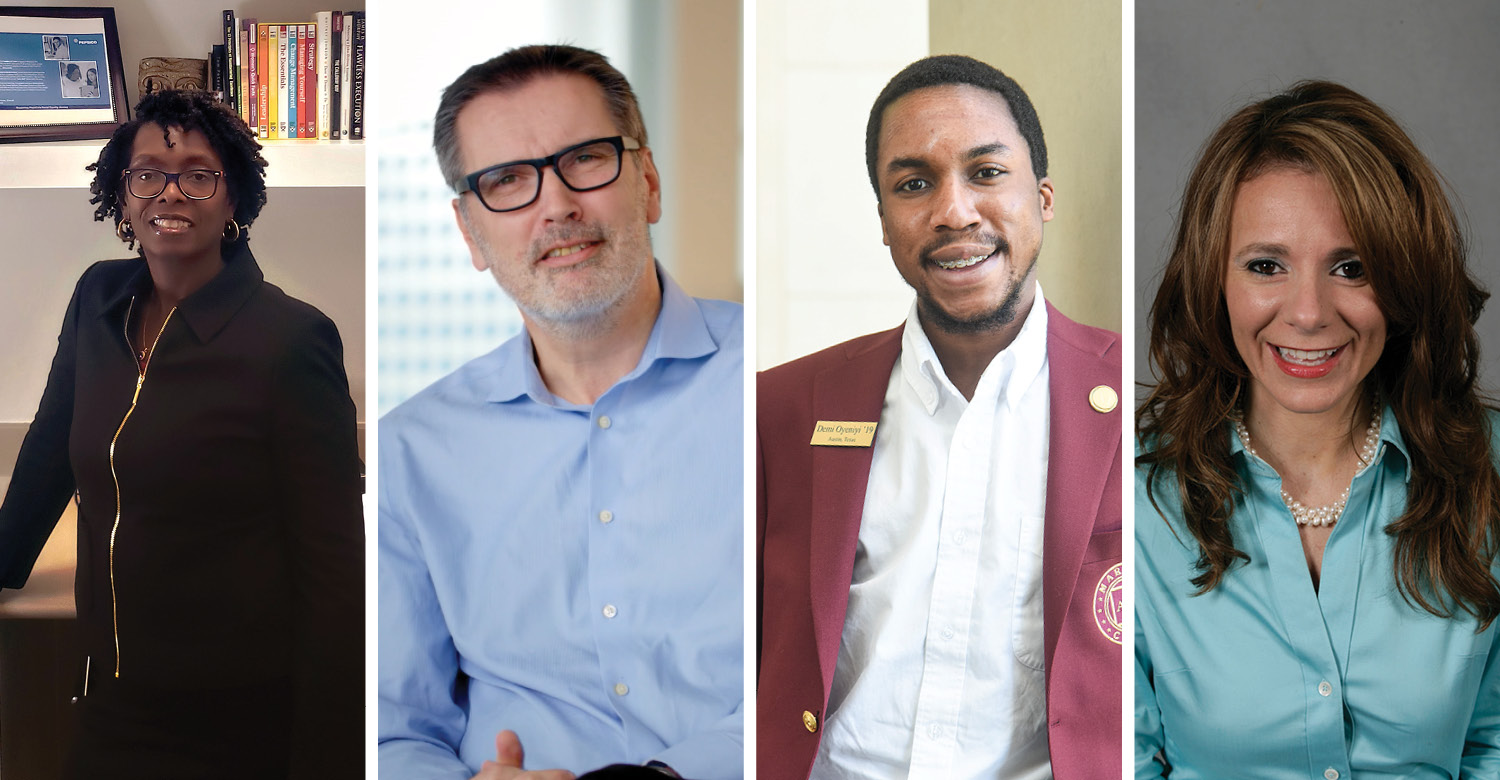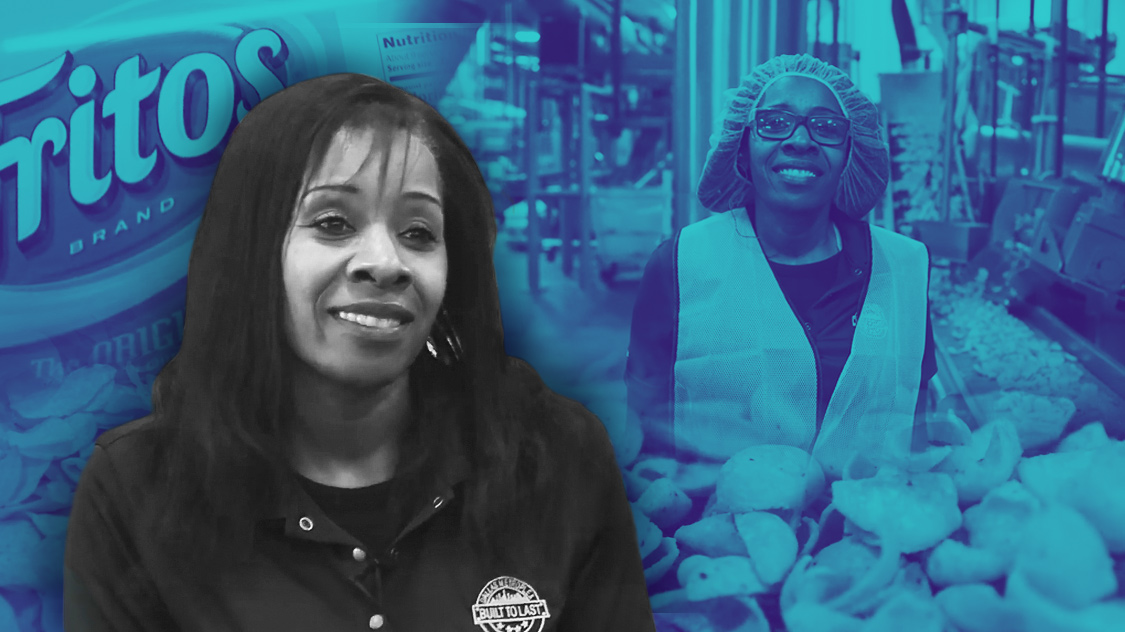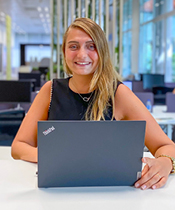Amanda Newell and her husband, Rob, have been together for more than 20 years. So the moment her wedding ring had to be cut from her hand wasn’t just upsetting — it was devastating.
In 2019, Amanda, a Quality Technician Administrator in Cupar, Scotland, underwent surgery on her left knee for pain so bad it kept her from taking walks with her husband. The following year, additional surgery on her right knee finally led to physical therapy. She had one session, and then the world shut down.
Her physical and emotional pain grew as she faced more health issues during the first wave of the COVID-19 pandemic. “I couldn’t move at all,” she says. “Every joint in my body was swollen.” Her husband and her daughter, Amy, helped with everything, she says, from cutting up her food to holding cups to her lips for sips of water.



